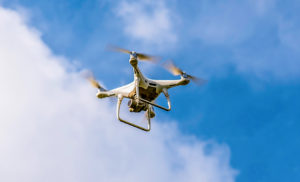Imagine trekking to work every day, from Surulere to Victoria Island.
Inconceivable, right? Well, the world in the 1800s didn’t know the luxury of owning a car. However, the year 1879 delivered the first stationary gasoline engine developed by Carl Benz; it was a one-cylinder two-stroke unit car.
Henry Ford was also one of those who pioneered this industrial wonder. He forever altered the ideas of what was deemed possible by constructing the first horseless carriage. Many years later, he was quoted, “If I had asked people what they wanted, they would have said faster horses.” Cars went on to have the biggest social impact in the 1950s.
Fast forward to 2006, when we were in the grip of another mass misperception. Peter Thiel, co-founder of PayPal captured this human malaise when he said “We wanted flying cars, instead we got 140 characters.”
Isn’t it curious that first we couldn’t figure out what a car was, but once we did we became fixated on it? Even Jack Dorsey and Evan Williams who created the 140-character messaging platform (Twitter) could not possibly have imagined the extent it would go in disrupting our world. It unlocked an aggressive revolution, which in the following years ushered in the Arab spring, dislodged entrenched governments, gave power to the underdogs and destroyed reputations. It has also made ordinary men into celebrities. In some ways, twitter and other elements of the social media revolution contributed to getting a black President into the White House.
But the point is not what twitter has done to our world, but where the next revolution will come from and the possibility that we may miss out yet again.
At the dawn of the computer industry, nobody really knew where this new technology would take us. Thomas Watson, president of IBM in 1943 said “I think there is a world market for maybe five computers.” Well he wasn’t the only one. Ken Olsen, founder of Digital Equipment Corporation, 1977 made one of the worst judgment calls ever when he said “There is no reason anyone would want a computer in their home.” What followed, to their amazement, was the explosion of desktop computing that eventually put a PC in nearly every home within 50 years.
Really, I wouldn’t be surprised if our predictions were all off the mark on many things. We are conditioned to process information within familiar paradigms. Our perceptions are chained by previously held notions. For instance, if we were to really analyze what we presently call Mobile Phones, we would see that they aren’t merely phones but lifestyle devices. The average smart phone is not just a phone but a clock, a diary, music player, television set, computer, camera and calculator. We transfer funds and browse the internet on these devices. There is also a humongous amount of apps being developed daily. So, merely describing these sophisticated devices as phones is a misnomer, brought about by our insistence on seeing things as they were, not as they are. It speaks volumes as to how technology is dictating the tune to which consumers dance, almost with their eyes closed.
Perhaps Steve Jobs, more than anyone else knew the importance of looking first to your gut, rather than the crowd. He said, “A lot of times, people don’t know what they want until you show it to them.” I suspect that reality over time becomes more nuanced. We must learn to trust our own insight and not necessarily another person’s version of reality. No matter how much of a good futurist we claim to be, events have punctured the belief that one single man can know for certain what the future holds.
In the way the imagination of those who lived in 1896 could not envision anything other than a faster horse, and the same way the world in 2006 never could see beyond flying cars, we could very well be sleeping through yet another transformative period of human history.
We never know if the unfolding future is being encoded in a new app or being programmed by a geek somewhere in Yaba. We might just wake up one day to find another ‘gangnam style’ phenomenon from some remote part of the world, hitting 2 billion views on YouTube.
Who could have imagined that a selfie taken at an award ceremony would result in a frenzy that would ripple across the global landscape. Trends appear and disappear so fast that we sometimes struggle to keep up. In the past, the newspapers reported yesterday’s news today and it seemed sufficient. Unplugging from the fast moving internet news cycle just for a few minutes makes the average person seem like a caveman. Really, 5 seconds is the new lifetime. I suppose this phenomenon needs studying, but one thing is certain, the future never emerges from a formula. It concedes to no universally prescribed method.
I don’t think we can understand this completely but we can seize this moment to question our mass delusion and get anxious for what comes next. This was exactly the apprehension that drove the dotcom boom and its eventual bust when massive investment funds flooded the tech space but investors soon realized they bought into hairy ideas counting for nothing.
Stewart Brand came close when he said, “Once a new technology rolls over you, if you’re not part of the steamroller, you’re part of the road.” Perhaps, we may never know what the future is, but the only way to avoid being a victim is to constantly adopt, adapt and discard when neccessary.
Ferdy ‘Ladi Adimefe is the CEO of Imaginarium Group, an ecosystem that serves as a launch-pad for starts-ups, focused on adding value through bespoke content, mobile platforms and brand digitalization.
Photo Credit: Matthieu Luna via Compfight cc





















